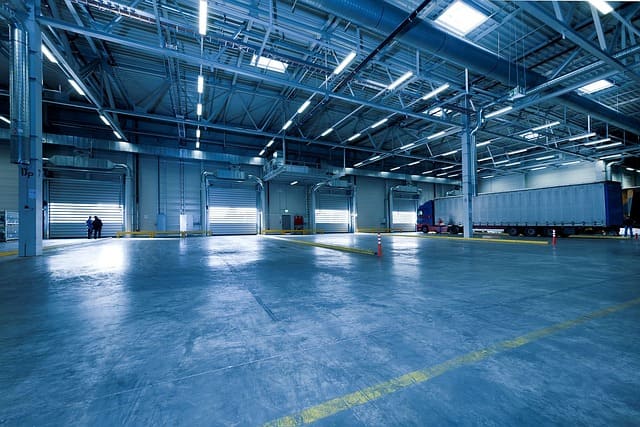Warehouses can pose a number of risks, depending on the nature of the industry, including slips, trips, falls, moving machinery, loading, and harmful or toxic substances.
As per the Occupation Safety and Health Act of 1970, employers are responsible for ensuring safe and healthful working conditions. So this means implementing measures that reduce risk and which contribute to a safe working environment.
According to recent data, accidents involving electricity are one of the main causes of workplace injuries and fatalities in the US, with 118 different occupations involved. This highlights the need for improved electrical safety across all industries. So, how do you implement these electrical safety measures in your warehouse? We are going to give you some useful tips in this post. So keep reading!
Common Electrical Warehouse Hazards
Warehouses are large industrial buildings designed to store a huge supply of products and inventory. For this reason, the electrical system in a warehouse is generally rather complex and very powerful.
With demands ranging from lighting, security, machinery, vehicles, and computer systems, collectively, electrical power can pose a serious risk to workers if inadequately installed or managed.
Hazards can include factors such as circuit overload, failure to install safety components, poor wiring, human error, failure to ground, and lack of proper maintenance.
How to Increase Safety
There are several measures that can be taken to improve electrical safety in a warehouse. Here are some suggestions:
#1: Ensure proper grounding
Proper grounding is essential to ensure that electrical currents flow safely through your electrical system. It can help prevent electrical shocks and fires. Make sure that all electrical equipment and appliances in your warehouse are properly grounded.
#2: Conduct regular electrical safety inspections
Hire a qualified electrician to inspect your electrical system regularly. This will help identify any potential hazards, such as damaged wiring or overloaded circuits before they can cause a problem.
#3: Label and organize electrical components
Proper labeling and organization of electrical components can help reduce the risk of electrical hazards. So, it’s important to keep all electrical panels, breakers, and switches properly labeled and easily accessible.
#4: Train employees on electrical safety
All employees who work in the warehouse should be trained in electrical safety. This should include how to properly use electrical equipment, how to identify potential hazards, and what to do in case of an emergency.
#5: Use proper electrical equipment
Make sure all electrical equipment used in the warehouse is the right one. Ensure the installation of quality components that are suitable for high power-usage such as industrial transformers.
#6: Provide the correct PPE for staff
Personal protective equipment (PPE) is crucial for protecting workers from electrical hazards. This may include insulated gloves, safety glasses, and hard hats. So, ensure that your employees have the correct PPE for the tasks they are performing and that they know how to use it properly.
#7: Keep the workspace clean and organized
A cluttered and disorganized workspace can increase the risk of electrical hazards. All electrical equipment in your warehouse should be properly stored when not in use, and ensure that there are no tripping hazards that could lead to electrical accidents.
#8: Avoid the system coming into contact with water
Water is a conductor of electricity, which means that if your electrical system comes into contact with water, it can pose a significant hazard. So, keep all electrical equipment away from water sources.
And if water does come into contact with electrical equipment, shut off the power immediately and have it inspected by a qualified electrician before using it again.
#9: Install safety devices
Installing safety devices such as ground fault circuit interrupters (GFCIs) and surge protectors can help protect against electrical hazards. GFCIs can detect ground faults and shut off power, while surge protectors can protect against power surges.
#10: Have a clear emergency plan
In case of an electrical emergency, have a clear plan in place. This should include procedures for shutting off power, evacuating the area, and contacting emergency services.
Final Note
In addition to preventing accidents and injuries, implementing the right electrical health and safety procedures can also help keep your business running smoothly.
Faulty or unsafe equipment can cost time and money, decreasing productivity and efficiency, as well as posing a danger to workers. So, it makes sense to invest in improving electrical safety in your warehouse, whatever your industry.
















